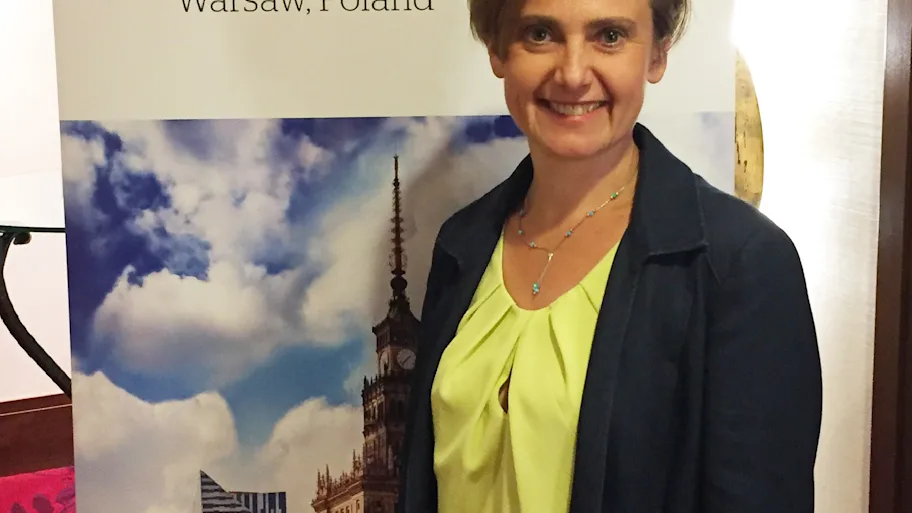
- Science news
- Health
- ‘Towards an Understanding of Tinnitus Heterogeneity’ now open for submissions
‘Towards an Understanding of Tinnitus Heterogeneity’ now open for submissions
By Martina Haller, Frontiers
“Tinnitus is the perception of a sound when no external sound is present. The severity of tinnitus varies but it can be debilitating for many patients. With more than 100 million people with chronic tinnitus worldwide, tinnitus is a disorder of high prevalence. The increased knowledge in the neuroscience of tinnitus has led to the emergence of promising treatment approaches, but no uniformly effective treatment for tinnitus has been identified. The large patient heterogeneity is considered to be the major obstacle for the development of effective treatment strategies against tinnitus.”
To bring together the latest scientific advances in Tinnitus research, Dr Christopher R Cederroth and Dr Winfried Schlee have initiated the Frontiers Research Topic Towards an Understanding of Tinnitus Heterogeneity. We asked them about their vision and challenges they wish to address in this highly inter- and multidisciplinary Research Topic.
What motivated you to organize this Research Topic?
Tinnitus is a prevalent condition that can be extremely bothersome. Its complexity and variety of phenotypes is a likely cause to failures in therapeutic interventions. This is why the fundamental understanding of tinnitus, its mechanisms and its successful treatment will require the converged efforts of multiple disciplines.
The Research Topic platform that Frontiers offers gave us a unique opportunity to gather the knowledge around tinnitus into a single portfolio, allowing debate and exchange of knowledge. We hope that scientists will take advantage of this chance to participate to discussions and challenge their peers.
What are the major challenges in Tinnitus Research?
There are many! Understanding why some individuals are tortured by tinnitus and others not, identifying what makes someone resilient or vulnerable to tinnitus development, identifying what subgroups of people are responsive to the available treatments and which are not, developing new methods for the objective diagnostic, refining animal models for ensuring solid and translatable pre-clinical studies in order to increase the success of clinical trials.
However, all of these challenges require a solid basis of knowledge on tinnitus and a scientific understanding of the tinnitus heterogeneity. Tinnitus Research is a battle that involves many scientific disciplines at the same time. Most important to allow us to address these challenges is funding, which is severely lacking (see Cederroth et al., Nat. Biotechnology, 2014 for more information ).
As tinnitus is mainly considered a symptom, and that many people experience it without being annoyed, it has not preoccupied funding agencies and public health authorities. It remains that for some people, tinnitus can become extremely annoying and disturbing, affecting life quality, and increasing risk for sick leave and disability pension – a significant cost to society cannot be neglected.
Which contributions are you hoping to attract to your Research Topic Towards an Understanding of Tinnitus Heterogeneity?
We hope to attract a large variety of contributions, from research on humans and animals, from neuroimaging to electrophysiology, from psychology to audiology that address the problem of the categorization of tinnitus subtypes. Has a treatment been successful on a particular group of tinnitus patients? What are the molecular and physiological distinctions between noise- and salicylate-induced animal models of tinnitus? How are emotions shaping tinnitus severity? How does the tinnitus evolve over time? Are there new methods to diagnose tinnitus? Is tinnitus purely environmental-driven or are there genetic influences to tinnitus development?
Beyond bringing cutting-edge Tinnitus research together in this Research Topic, which outreach are you hoping to achieve with this initiative?
Making it open access is important to us so that both scientists, governmental agencies, and patients get rapid access to the latest findings. Indeed, tinnitus sufferers are extremely avid of recent advances in the field. The Research Topic platform allows them to follow the most recent progress.
We want to increase awareness on tinnitus, so that it becomes a recognized unmet clinical need that deserves the plain attention of the authorities. Tinnitus patients often tell us they want to know more about what is going on tinnitus research: it gives them hope. Therefore it is a big advantage that all articles in this research topic are open access.
Participating Topic Editors:
Christopher R. Cederroth, Arnaud Norena, Berthold Langguth, Winfried Schlee, Sven Vanneste, Tobias Kleinjung, Jose Antonio Lopez-Escamez, Pim Van Dijk, Martin Meyer, Grant Searchfield, Peyman Adjamian, Rilana f.f. Cima, Deborah A Hall, Birgit Mazurek, Heidi Olze, Giriraj Singh Shekhawat, Nathan Weisz, Silvano Gallus, Jianxin Bao, Antonello Maruotti, Rüdiger Christoph Pryss, Manfred Reichert, Thomas Probst, Bård Støve
All forms of submissions are welcome to this Research Topic:
Original Research Articles, Review Articles, Method Articles, Clinical Trials, Case Reports, Mini Review Articles, Code, Book Reviews, General Commentaries, Perspectives, Hypotheses & Theories. Disciplines included are neuroscience, neurology, genetics, audiology, otolaryngology, psychology, psychiatry, pharmacology, epidemiology, medical informatics, data mining and statistics. Articles can be directly submitted on the topic webpage following this link.






